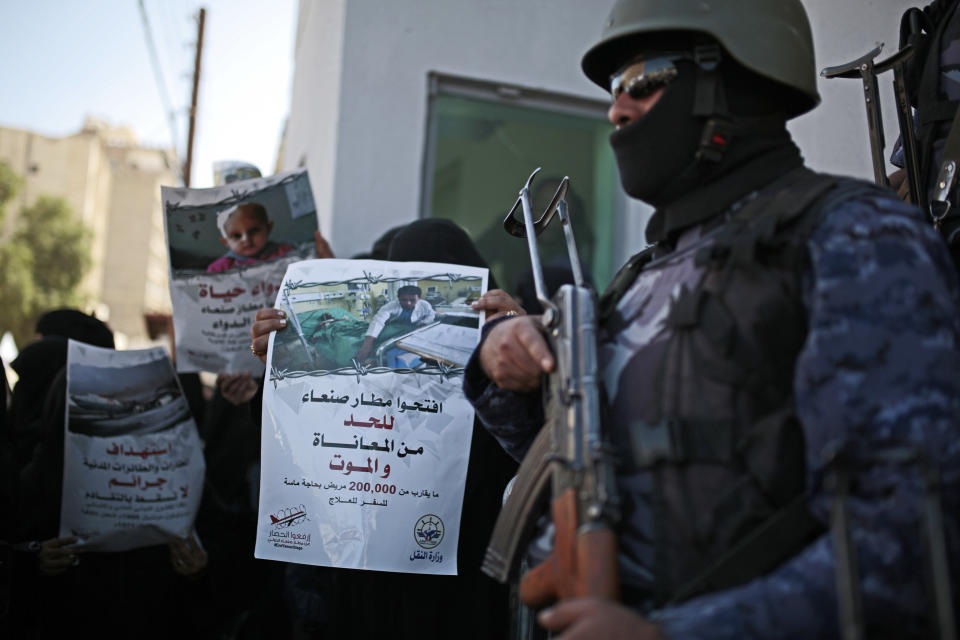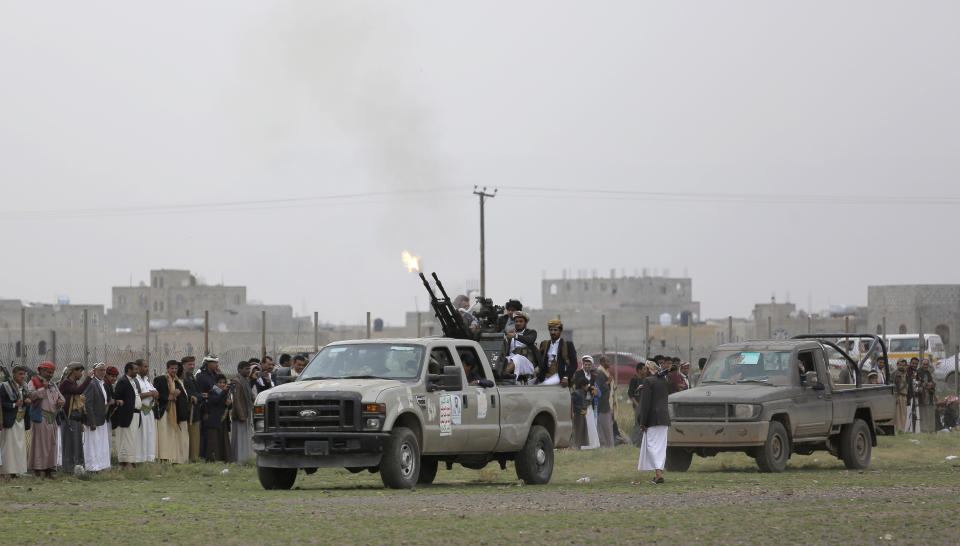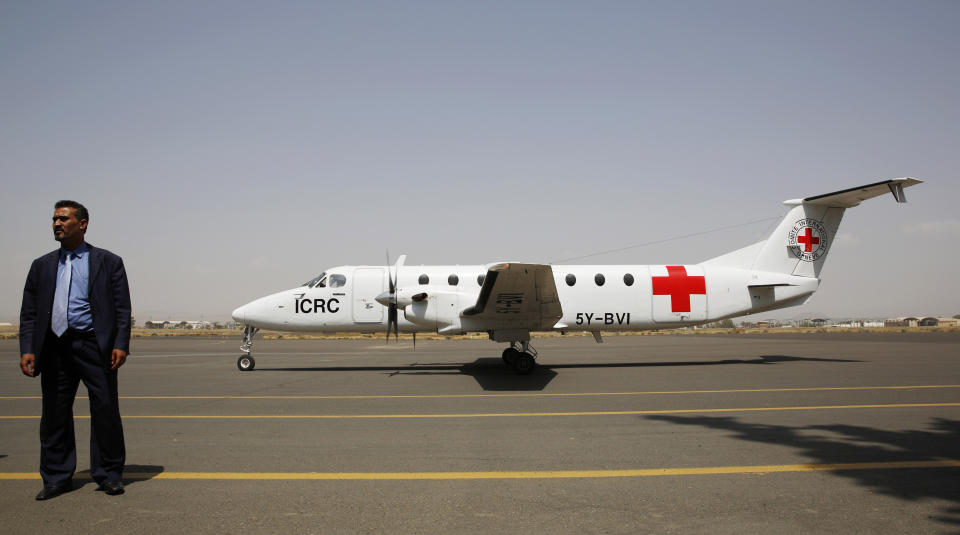Groups: Yemen airport closure 'death sentence' for thousands
CAIRO (AP) — The Saudi-led coalition's closure of the airport in Yemen's capital, Sanaa, has prevented thousands of sick civilians from traveling abroad for urgent medical treatment, two international aid groups said in a joint statement.
According to the Norwegian Refugee Council and CARE, the Sanaa airport's three-year closure has amounted to a "death sentence" for many sick Yemenis.
The two groups appealed late Monday to Yemen's warring parties to come to an agreement to reopen the airport for commercial flights to "alleviate humanitarian suffering caused by the closure."
The Saudi-led coalition, backing Yemen's internationally recognized government, has been at war with the rebels, known as Houthis, since 2015, and has imposed a blockade on ports that supply Houthi-controlled areas.
"As if bullets, bombs and cholera did not kill enough people, the airport closure is condemning thousands more to a premature death," said Mohammed Abdi, the Norwegian Refugee Council's director in Yemen.
"There is no justification for preventing very sick civilians from leaving the country to get life-saving medical treatment," he added.
The Iran-backed Houthis overran Sanaa in 2014, prompting the Saudi-led coalition to intervene the following year to try to restore the government to power.
The stalemated war has claimed tens of thousands of lives, thrust millions to the brink of famine and spawned the world's most devastating humanitarian crisis.
In recent days, fighting has flared up between the Houthis and government forces.
The U.N. Human Rights Office said Tuesday that at least 14 civilians were killed in a July 26 attack on a market in the northern province of Sadaa, which borders Saudi Arabia. And in the past 10 days, at least 19 civilians died from fighting in different parts of Yemen.
Also, militant groups appear to have stepped up attacks in Yemen, the U.N. rights office said. Al-Qaida's branch in Yemen and the country's Islamic State group affiliate have profited from the chaos of the civil war.
Last week, al-Qaida militants targeted a military camp in the southern Abyan province, killing at least 20 troops and setting off hours-long clashes with a Yemeni force trained by the United Arab Emirates, a member of the Saudi-led coalition.
The attack came a day after the main southern city of Aden was shaken by double attacks. The Houthis fired a ballistic missile at a military parade of the same UAE-trained militia known as the Security Belt while suicide bombers blasted a police station in another of the city's neighborhoods.
At least 51 people were killed in the double attacks — the deadliest day in Aden in nearly two years. The city has been the seat of Yemen's internationally recognized government.
Also on Tuesday, Yemeni officials said flood waters swept through refugee camps in the Red Sea province of Hodeida amid heavy rainfall that continued for a third day over most of the country.
The officials said dozens of tents were flooded in the district of Khoukha, leaving hundreds of refugees stranded. Photos circulated online showed muddy water sweeping away cars and belongings.
The officials spoke on condition of anonymity because they weren't authorized to speak to the media.
Later, the health ministry of the Houthi rebels said in a statement that a family of 12 was killed late Tuesday when their house collapsed from heavy rainfall in Malhan district in the northern Mahwit province.
Yemen is at the southern corner of the Arabian Peninsula, overlooking the Red and the Arabian Sea. Its rainy season is in the spring and summer.
___
Associated Press writer Ahmed al-Haj in Sanaa, Yemen, contributed to this report.



